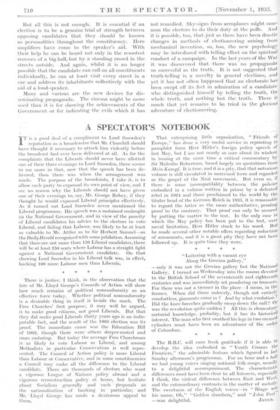* There is justice,' I think, in the observation that
the fate of Mr. Lloyd George's Councils of Action will show how much remains of political nonconformity as an effective force today. Whether political nonconformity is a desirable thing itself is • beside the mark. The Free Churches' first purpose, it may well be argued, is to make good citizens, not good Liberals. But that they did make good Liberals thirty years ago is an indis- putable fact, and the result of the 1906 election wits its proof. The immediate cause was the Education Bill Of 1902, though*. there were • others deeper-rooted and More enduring. • But today the average Free Churchman is as likely to vote Labour as Liberal, and among Methodists in particular Conservatism is well repre- sented. The Council of Action policy is more Liberal than Labour or Conservative, and in some constituencies a Council . may make all the difference to the Liberal candidate. There are thousands of electors who want a vigorous League of Nations policy abroad and a vigorous reconstruction policy at home, but hesitate about Socialism generally and such • proposals as the nationalisation of banking in - particular; • and Mr. ' -Lloyd George has made a dexterous appeal to them.


























































 Previous page
Previous page